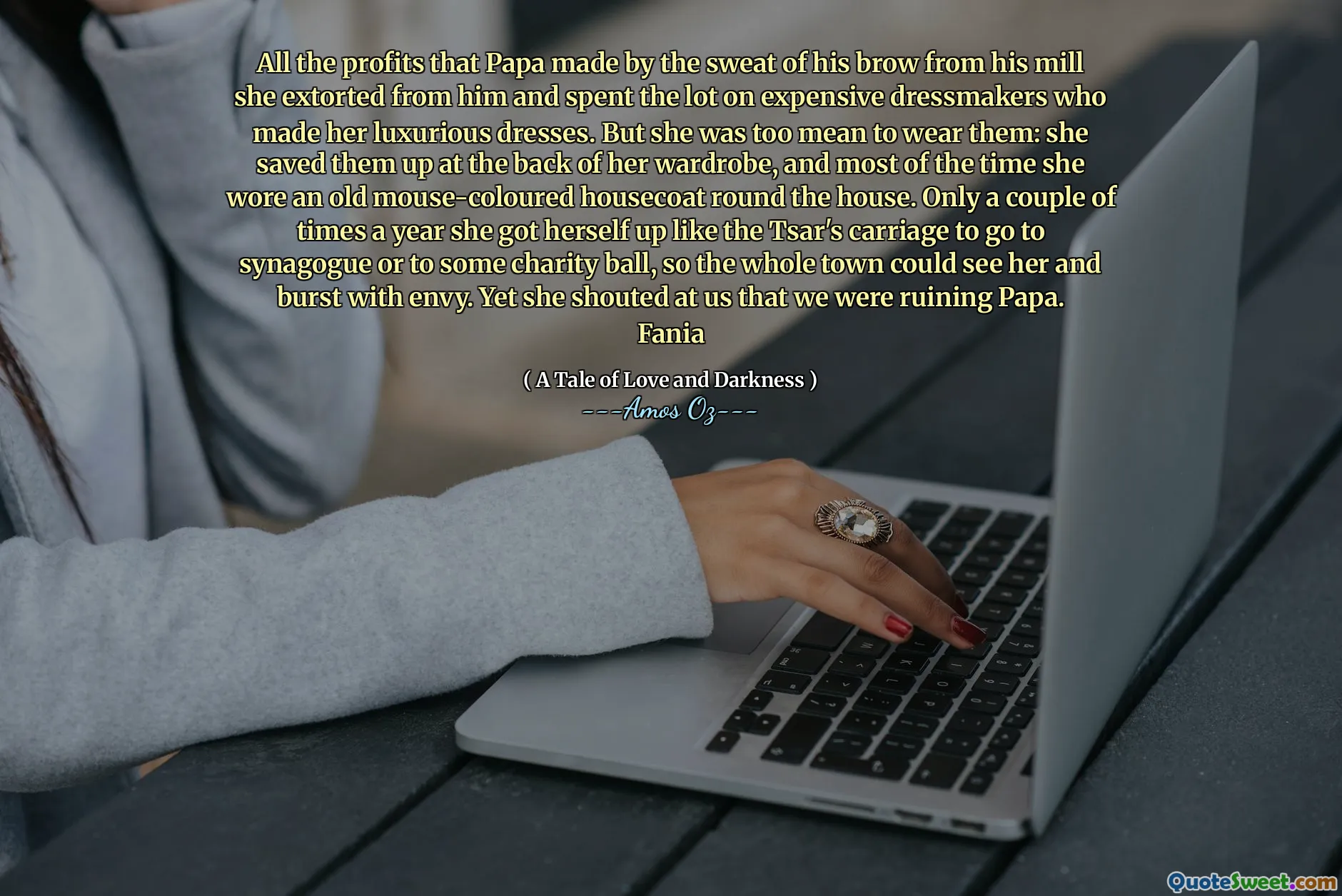
All the profits that Papa made by the sweat of his brow from his mill she extorted from him and spent the lot on expensive dressmakers who made her luxurious dresses. But she was too mean to wear them: she saved them up at the back of her wardrobe, and most of the time she wore an old mouse-coloured housecoat round the house. Only a couple of times a year she got herself up like the Tsar's carriage to go to synagogue or to some charity ball, so the whole town could see her and burst with envy. Yet she shouted at us that we were ruining Papa. Fania
This quote from Amos Oz’s 'A Tale of Love and Darkness' captures the bitter contradictions and complexities that can exist within family dynamics and personal relationships, especially those tinged with economic struggles and social appearances. The image of a mother figure who aggressively extracts every penny earned by her husband, only to lavish it on a lavish lifestyle that she seldom actually enjoys, creates a powerful portrayal of contradiction and control. It suggests a deep emotional and psychological complexity: the luxurious dresses are symbols not just of vanity or indulgence, but of social posturing and perhaps a desperate attempt to create a facade of wealth and status. Yet ironically, she is too stingy to wear them often, hinting at internal conflicts or fiscal fears.
The contrast between her ordinary housecoat worn daily and the extravagant attire unveiled only on rare occasions sharply highlights the performative nature of social status and public image. Moreover, the fact that she shouts at her children for 'ruining Papa' while she is the one squeezing every last bit of his earnings introduces a layer of hypocrisy and familial tension that can strike a universal chord. This invocation of family conflict, social appearance, economic sacrifice, and human frailty encapsulates multi-dimensional aspects of personal identity and the burdens of societal expectations. The harsh realities portrayed here invite the reader to reflect on how people manage appearances, the cost of pride and pretensions, and the often cruel complexities hidden beneath familial love and resentment.






